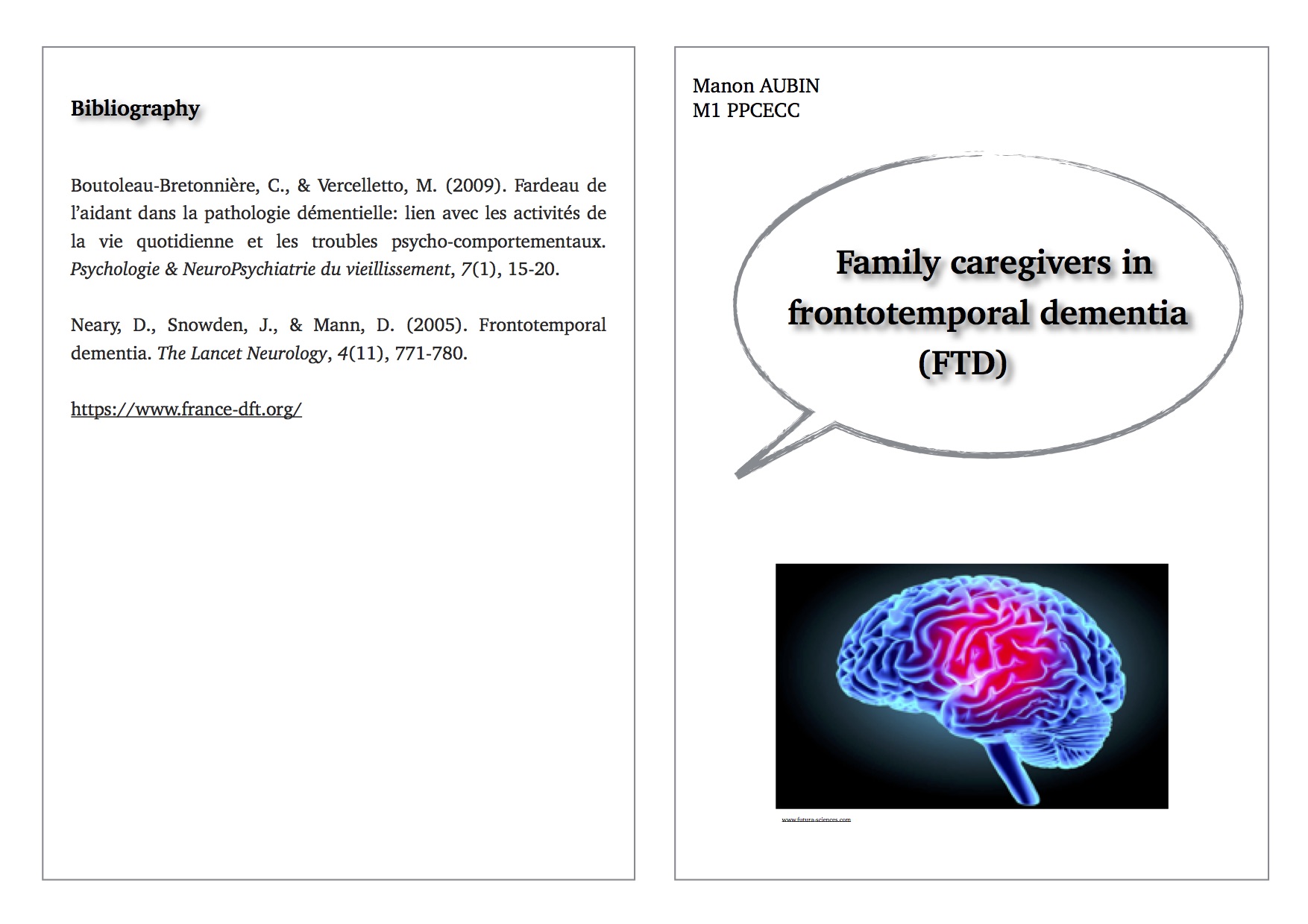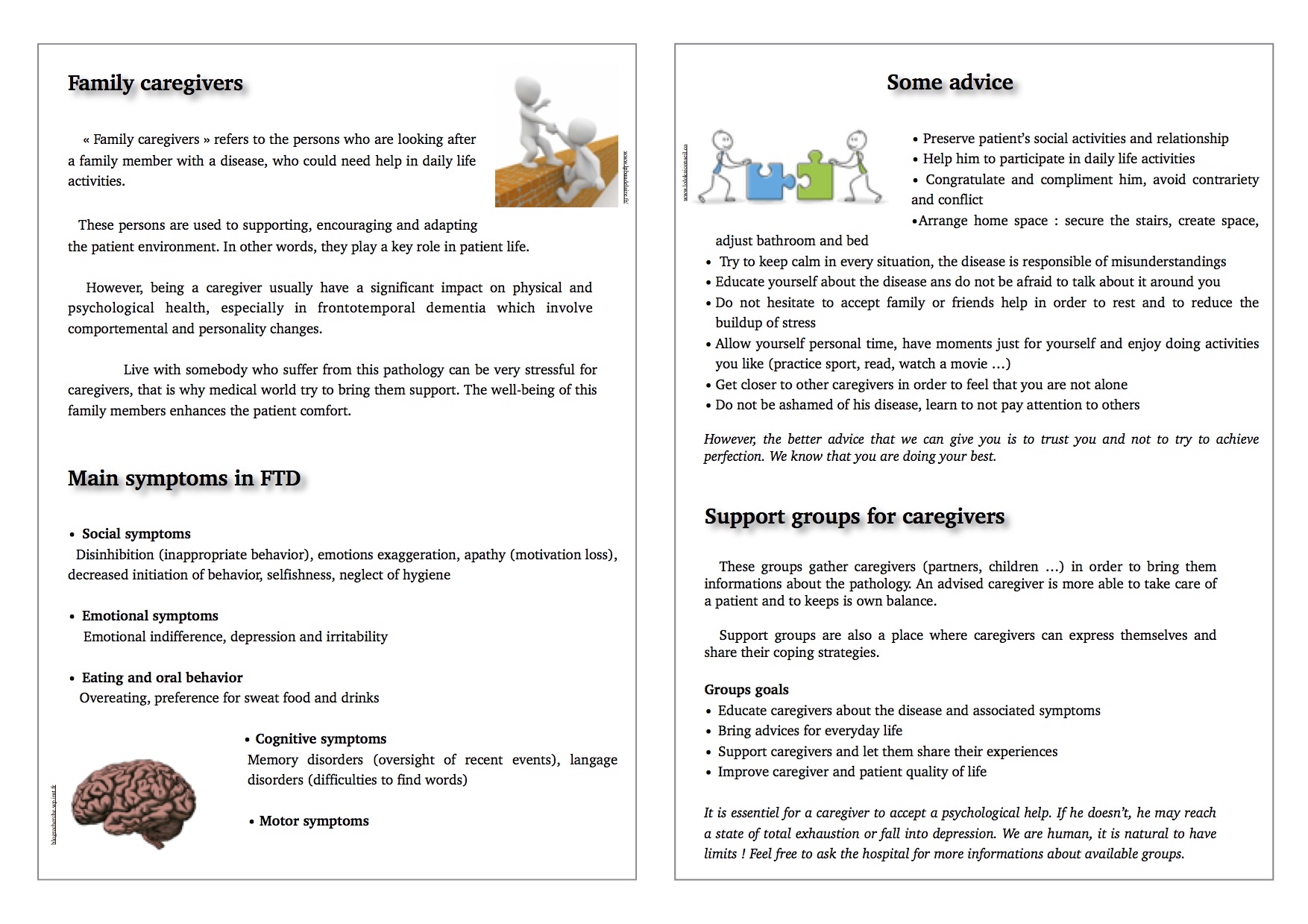Last year, I had to do a brochure during my first year of Master. The aim was to do a brochure on a subject which deals with psychology and to adapt the content to a specific audience.


The brochure that I have done focuses on a neurodegenerative disease in particular : the frontotemporal dementia. The content of this pamphlet is intended to family caregivers, that is to say persons who live with the patient and help him in his daily life, without being a professional. In most cases, these persons are partners or children. I choose this subject because I did an internship on the CMRR of Laënnec hospital, and I realize that being a caregiver is difficult with every disease, but often more difficult with this pathology in particular. Indeed, the caregiver is lost because he feels like he is losing the person that he knew, because of behavioral disorders (apathy, alcohol abuse, anti-social behavior …) induced by the disease. Moreover, the patient suffer from anosognosia, which means that he is not aware of his pathology. This symptom further complicates the relationship between the patient and the caregiver.
This brochure can be very useful because family caregivers are not health professionals thus they are not necessarily aware of the disease consequences, especially in this dementia which involve a lot of comportemental and personality changes. Therefore, it is essential to bring them support, to inform and advise them on their loved ones’ pathology, and also make them know that arrangements are set up in order to preserve their well-being in spite of what they are going through. Moreover, family caregivers play a key role in patient’s care. Indeed, these persons will look after the patient, support him and adjust his environment according to his disease. Therefore, family caregivers must not only know the main informations about the dementia but also take care of themselves, because being a caregiver usually have a significant impact on physical and psychological health. Actually, it is important to keep in mind that patient’s health is closely related to caregiver’s well-being. Finally, frontotemporal dementia is not a well-known disease, often confused with psychiatric disorders in medical world. Therefore, informing family can help to make the correct diagnoses and thereby improve the patient care.
To make this brochure, I had to take into account that the content is intended to persons who are not professionals, thus they doesn’t belong to the medical world and are not supposed to know the medical terminology. For this reason, I had to introduce the disease in a language understandable to a non-expert audience. Then, there is another point I had to pay attention with : pamphlet goals are to educate and inform family, help them in their caregivers role while supporting them, but not to increase their worries about what will happening in the future. Therefore, I had to write this brochure with an empathic langage and focus the content on adaptation options. The aim is to lead the caregiver to think « it is possible to continue despite the disease ».
The words I have learned :
Pamphlet : brochure
Caregivers : aidants familiaux
Internship : stage
Loved ones : les proches, l’entourage
To support somebody : soutenir quelqu’un